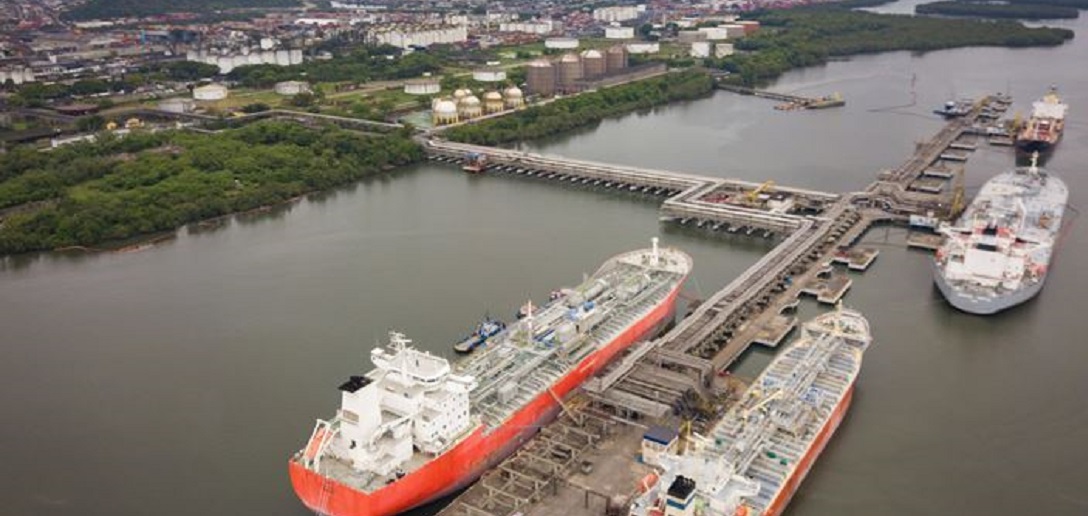
Port of Santos terminals soybean shipment logistics
Oct, 14, 2022 Posted by Gabriel MalheirosWeek 202241
The Port of Santos is on track to break yet another soybean movement record this year, prompting new investments in logistics. There is an expectation of 24.5 million tonnes being shipped by the end of 2022, an increase of 5.3% compared to the total exported last year.
The predictions for 2023 point to a volume 3.5% higher at around 25.4 million tonnes of the commodity. Terminals in the Port of Santos have been investing in logistics to ensure the security of the flow of these grains.
According to the Santos Port Authority (SPA), the state-owned company that manages the Port of Santos, 23.8 million tonnes were shipped by August.
The volume represents a growth of 9.9% from the total last year, when 21.6 million tons left the country through Santos.
“Santos terminals are responsible for 26% of Brazil’s soybean shipments. This share shall remain unchanged next year, catching up with the progress of the harvest,” highlighted the union of port operators in the state of São Paulo, Sopesp, Regis Prunzel.
See below the track record of the volume of soybeans (HS 1201) exported from the Port of Santos between January 2019 and August 2022. The data is from DataLiner.
Soybean exports via Port of Santos | Jan 2019 – Aug 2022 | WTMT
Source: DataLiner (click here to request a demo)
According to the executive, operators are investing in repowering the terminals, which includes increasing the capacity for receiving, storing, and shipping grain.
Implementing automated operating systems is also a focal point, in addition to training employees to cope with growing cargo volumes.
Port Authority
SPA also listed investments that have been or are being made to ensure the flow of the record harvest.
Among them is the construction of the third railway between districts Valongo and Paquetá, the implementation of four tracks in the Macuco region, and the leveling of level crossings.
In addition, SPA also listed works on Avenue Augusto Barata, at the entrance to the city, to improve access to the port’s Righ Bank and the regularization of two other parking lot areas, which should add at least 1,500 spaces for trucks.
“Additionally, private investments are being made in new silos, larger warehouses, equipment, and railroad lines, all of which increase operational efficiency and add to capacity for storage, reception, and dispatch, in terminals such as ADM do Brasil, TES, Terminal XXXIX and Teag, in addition to future investments planned for the STS 11 terminal,” highlighted SPA, in a note.
With an expected throughput of 15.6 million tonnes of grain per year, the STS11, in Paquetá, should become the largest solid vegetable bulk terminal in the Port of Santos.
The area, acquired by Chinese Cofco, has 114,700 square meters and will have a static storage capacity of 516,600 tons of grain.
Vessels
According to the executive director of the Union of Maritime Navigation Agencies of the State of São Paulo (Sindamar), José Roque, with the mooring of larger ships in the port, the number of calls should be reduced since there is more room for larger single-vessel shipments.
“We have noticed that, compared to the same period in 2021, soybean operations have been breaking consecutive records in shipments – without operational losses.”
According to him, a linear demand is essential for a large outlet, but the market does not work that way.
“We noticed that in-between harvest periods are becoming scarcer, and a lot will depend on the physical capacity terminals can offer. In this aspect, The ideal is to have the highest turnover possible in the shortest amount of time, with the weather playing a particularly important role in ensuring that operations will not be interrupted.”
Source: A Tribuna
To read the full original article, please go to: https://www.atribuna.com.br/noticias/portomar/terminais-do-porto-de-santos-investem-em-logistica-para-escoar-safra-de-soja
-
Grains
May, 16, 2022
0
See how the drought in India may affect Brazil and the global wheat market
-
Grains
Jul, 15, 2020
0
Brazil imported soy to supply domestic demand after breaking export records
-
Ports and Terminals
Sep, 08, 2021
0
Pecém exceeds 2 million tons handled in a single month, setting new record
-
Grains
May, 04, 2022
0
Brazil to export 43% fewer soybeans in May than it did in 2021

